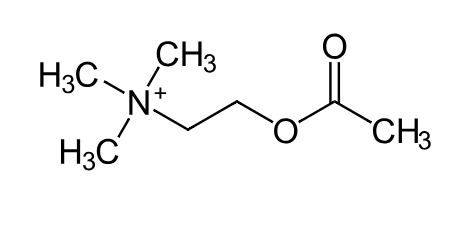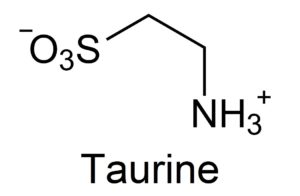Citicoline and Brain Health

Citicoline is a precursor for the production of the neurotransmitter acetylcholine (Ziesel 2018). In addition, it is used to make protective phospholipid compounds found in brain cell membranes (Ziesel 2018). Biochemically, choline acts as a methyl donor, an important type of reaction involved in numerous cellular processes, including DNA regulation (Gromova 2022). Typically, choline is consumed in food, with some of the richest sources including liver, egg yolk, meats, almonds and beans (Wiedeman 2018).
Citicoline goes by a number of different names, including Cytidine-diphosphate choline (CDP-choline) and cytidine-5’-diphosphocholine. Due to its many uses in the body, research has explored its effects on various brain health conditions, including dementia, Parkinson’s disease, stroke, addiction and depression.
Citicoline and Dementia
Probably one of the most notable potential uses for citicoline is for the prevention or treatment of dementia and Alzheimer’s disease. Acetylcholine neurotransmitter levels are known to decline with age (Muir 1998), and drugs that deplete acetylcholine can increase the risk for dementia (Dmochowski 2021). As such, supporting acetylcholine production has been seen as a potential avenue for dementia treatment.
Some of the initial research exploring its use for dementia was conducted in Italy. One of the first trials gave subjects with cognitive decline 1000 mg of citicoline for two three-week cycles spaced apart by one week (Serra 1990). Patients were found to have improvements in both cognitive and behavioral parameters with citicoline. The study, however, did not include a placebo group.
A study in patients with cognitive decline found that citicoline improved memory in those with early memory deficits (Spiers 1996). A separate trial in healthy individuals over age 55 found that citicoline improved aspects of memory with supplementation (Alvarez 1997). A study on patients found that those with early stage Alzheimer’s disease who also had a genetic risk for developing the condition had greater improvements than those with more serious dementia or without the genetic risk (Alvarez 1999).
Of interest, studies on vascular dementia, a form of dementia due to damaged blood vessels, did not show benefits with citicoline supplementation (Cohen 2003). A meta-analysis of the research from 2023 found that citicoline appears to improve cognitive function in dementia, although it was noted that the studies available are mostly of poor quality (Bonvicini 2023).
Citicoline and Parkinson’s Disease
Parkinson’s disease is a common neurological condition that disrupts the ability to initiate movement. People become stiff and have problems with walking, balance and talking. Current treatments for Parkinson’s disease are not effective for stopping progression of the condition but can lead to some symptomatic improvements.
However, research on citicoline for Parkinson’s disease looks promising (Que 2021). A review of the research found that the studies appear to show that citicoline can lead to improvements in tremor, movement, rigidity, handwriting and speech. Citicoline also allowed for standard medications to be reduced by half, significantly improving medication tolerance.
Citicoline and Stroke
While some of the early studies on citicoline for the treatment of stroke appeared to show benefits, overall, the research is decidedly mixed. One of the first studies gave stroke patients citicoline by intravenous administration for two weeks versus placebo infusions (Tazaki 1988). Patients treated with citicoline had greater improvements in consciousness than patients who received placebo.
A study using oral dosing of citicoline found similar benefits, with improvements in overall function and cognition with citicoline (Clark 1997). Interestingly, in the study, 500 mg of citicoline was more effective than 2000 mg. However, the same group of researchers did additional research and were unable to replicate their results. In the first follow-up study, patients treated with just 500 mg of citicoline did not improve more than those receiving placebo. In a further study with 2000 mg of citicoline, again, no benefits were apparent for the treatment of stroke (Clark 1999, Clark 2001).
A large study out of Korea on acute stroke patients found that higher doses of citicoline, between 2000-4000 mg, improved outcomes. Improvements seemed ever greater for those that extended treatment to 12 weeks. It’s worth noting that the safety of citicoline was considered quite high and side effects that did develop were resolved with discontinuation if needed (Cho 2009).
The most recent meta-analysis of citicoline for stroke concluded that the evidence is mixed and shows no statistically significant benefit (Marti-Carvajal 2020). The available clinical trials were also considered to be at a high risk for bias. However, in the majority of studies reported so far, citicoline appears to be safe.
Depression
While there are fewer studies, what’s available suggests that citicoline may have a positive influence on depression. A study of patients struggling with methamphetamine dependence and bipolar depression or major depressive disorder found that citicoline led to significant improvements in mood. Although in the same study, cognitive function and methamphetamine use patterns were unchanged (Brown 2012).
In a more recent study, patients with depression treated with citicoline and antidepressant medication led to higher levels of remission than medication with placebo (Roohi-Azazi 2017). The authors concluded that citicoline may be an effective adjunctive treatment to use with antidepressant medication.
Addiction
Drug addiction is a difficult condition to treat with relapses being quite common, often with devastating consequences. A review from 2014 found that high doses of citicoline may help to decrease cravings in cocaine dependence (Wignall 2014). They also found that early data suggest potential for the treatment of alcohol and cannabis dependence.
Conclusion
Citicoline is an interesting supplement that can increase production of the neurotransmitter acetylcholine while also increasing protective cell membrane phospholipids. The current data suggests that citicoline may be helpful in the prevention and treatment of dementia, Parkinson’s disease and addiction. However, studies for stroke are more nuanced with larger and longer clinical trials needed to know if it is beneficial. Citicoline may also be useful for the treatment of depression, although again, more clinical trial data would be useful to fully confirm the benefits.



